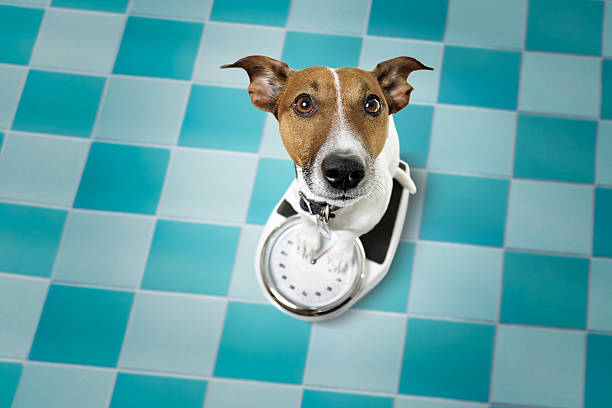7 Reasons Why Your Dog
Is Gaining Weight
Why is my dog gaining weight? Common causes and solutions
You’ve noticed your dog has gained a significant amount of weight, and despite your best efforts with diet and exercise, nothing seems to work. Here are some potential reasons for your dog’s weight gain and what you can do about it.
The wrong food
It’s not always about how much you’re feeding your dog, but rather what you’re feeding them. Each dog has specific dietary requirements that vary by breed, age, and activity level. For example, a senior dog’s needs differ significantly from those of a growing puppy. Similarly, the dietary needs of an active senior dog will differ from those of a less active one. It’s crucial to consult with your vet to determine the right nutrition for your dog’s specific needs.
Pregnancy
If your female dog isn’t spayed, those extra pounds could be due to pregnancy. It’s an obvious reason often overlooked by pet owners. Pregnancy can result in sudden weight gain, and many owners may not immediately recognize the signs. If you suspect your dog might be pregnant, a visit to the vet can confirm it.

Parasites
Internal parasites can cause unexpected weight gain. Parasites can attach to the stomach walls and intestines, leading to fluid accumulation in the affected areas, giving your dog a potbellied appearance. This issue is more common in puppies and younger dogs with developing immune systems. Your vet can conduct tests, such as blood and stool samples, to diagnose and treat parasitic infestations.
Fluid retention
Fluid buildup can make it seem like your dog is gaining weight. This is often a side effect of heart disease but can also result from other conditions like tumors or issues with internal organs. Fluid retention gives your dog a potbellied look, unrelated to diet or exercise. A vet can diagnose the underlying issue and suggest appropriate treatment.

Undiagnosed hypothyroidism
Thyroid hormones regulate energy distribution, digestion rates, and metabolism. When these hormones are deficient, metabolism slows down, causing weight gain. This condition, known as hypothyroidism, can make it puzzling for owners as their pet gains weight despite a normal or reduced food intake. Other symptoms include coarse hair, lethargy, dry skin, and a slow heart rate. If you suspect hypothyroidism, consult your vet for testing and potential medication.
Bloating
Dogs that eat too quickly often swallow a lot of air along with their food, leading to a condition known as gastric dilatation or bloat. This results in an enlarged belly and can cause severe symptoms like difficulty breathing, abdominal pain, rapid heartbeat, drooling, and even collapse. Bloat is a life-threatening condition requiring immediate medical attention. Large breeds like German Shepherds and Great Danes are particularly susceptible to bloat.
Prescription drugs
Certain medications can cause weight gain in dogs, especially when taken long-term. If your dog is on medication and gaining weight despite a controlled diet and regular exercise, the medication might be the cause. Consult your vet, who may be able to prescribe an alternative.
If your dog is gaining weight despite your best efforts to control their diet and increase their activity levels, a medical issue might be to blame. Such weight gain often signals an underlying health problem, and timely intervention can be life-saving. Work with your vet to diagnose the cause and develop the best treatment plan for your dog’s specific needs.






